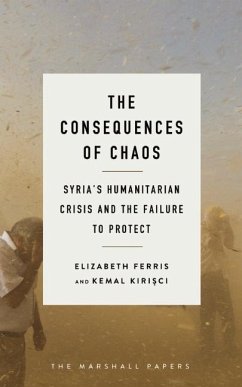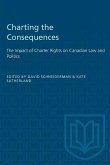" Nearly 12 million people have been forced to leave their homes and communities because of the civil war consuming Syria. The displacement, internally and externally, of more than half of the country's population-one of the largest forced movements of people since the end of World War II-has transformed the region. It has also triggered a wave of political turbulence in Europe as hundreds of thousands have fled across the Mediterranean to seek refuge. The Consequences of Chaos details the plight of Syria's uprooted citizens and examines the long-term economic, political, and social implications of this massive movement of people. The humanitarian crisis has been overwhelming for all actors involved. Neighboring countries host almost five million Syrian refugees with no end in sight. European institutions struggle to come up with a coherent approach to the crisis. The United Nations appeals for increasing levels of financial support to respond to the demands for food, shelter, and medical care. A New Global Approach for Syria is needed, the authors maintain, and they propose an innovative system of burden sharing to respond to the humanitarian crisis in both the short and longer term. "







